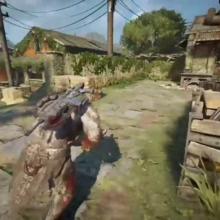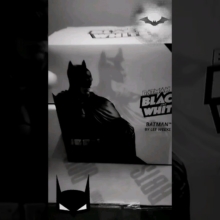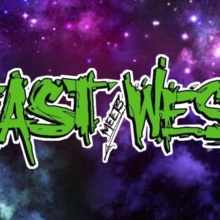Depeche Mode & “Enjoy the Silence”: From Parody to Royalty | New British Canon
This video is sponsored by Skillshare. The
first 1000 people to follow the link in the description will receive a free trial of Skillshare
Premium. Stick around to the end to learn more. Kids armed with synths and squeaky bubblegum tunes,
in 1980 Depeche Mode arrived. By the end of the decade they had twenty UK top 40
hits and had grown progressively darker, moodier and more industrial, but still remaining pop. However
in the US they were not mainstream, known mostly by listeners of anglophile college
radio DJs and seen along with The Smiths, Cure, New Order and XTC as “alternative.”
Though this cult appeal had made them one of the biggest US concert draws of the late 1980s,
they couldn't back that up in album sales.
But 1990's Violator would change that. And alongside
“Personal Jesus,” its second single would solidify that after a decade as a band they
could still have the biggest songs of their career, defining Modern Rock-crossover hits in the process. This is New British Canon
and this is the story of "Enjoy the Silence." By 1989 Depeche Mode were looking to leave
their past behind. When they emerged at the beginning of the 80s with their first UK hits they had acquired an image. That of the inoffensive
chirpy synth-poppers from Basildon, peers of Haircut 100 and Kajagoogoo and perfect
for the front of teenybopper magazines or interviews on kids TV. In all meanings of the word, Depeche Mode were a pop band.
The serious UK music weeklies saw them as a joke. “I think it’s partly true that we’ve been misunderstood but probably better to
say we’ve been ignored. I think our merit and worth has been completely overlooked.
To a certain extent we’ve never been forgiven for our early selves and the way we were when
we were starting off. We were very sickly; ultra nice. And in some ways that was the
charm but it also got on people’s nerves.” And with their core songwriter Vince Clarke
leaving after their first album, and Martin Gore taking his place for their shaky second:
Depeche Mode were seeming to be a very short-lived joke. But they kept getting hits. In spite of some awkward lyricism [“The turning point of a career/In Korea being insincere”] 1983’s “Everything Counts” reaching number 6 showed they
could potentially outlive Haircut 100.
To further separate themselves from the flash-in-the-pan
synthpoppers, they took notes from Industrial projects like Germany’s Einstürzende Neubauten and the UK’s Test Department. This not only inspired their evolving sound, with the group implementing loads of abrasive samples and
mechanicised percussion; but also the band’s evolving look, with chains and fetish-gear
entering their stage attire. Gore would take to occasionally wearing a leather skirt, which
would provoke snide comments from the rock press for the rest of the decade. "Looking
back I’m not very happy about some of the clothes I’ve worn. Every interview we do
the skirt is mentioned. I actually think it’s quite funny, though I didn’t look at it
deeply. I regret that so much attention was paid to it.” And though their content was more perverse than before, “Master and Servant,” “Shake
the Disease,” “Blasphemous Rumours” and “Stripped” were all top 20 singles
in the UK.
1986’s Black Celebration would not only
spawn hits but, because of Depeche Mode’s inventive use of samplers, they would also
be referenced, alongside Kraftwerk, New Order and Giorgio Moroder, as an influence on the
Chicago House and Detroit Techno scenes. Despite this, Melody Maker’s Steve Sutherland described the album as: "pussycats desperate to appear perverted
as an escape from the superficiality of teen stardom." Because of this, by 1987 Depeche Mode were barely talking to the UK press,
sick of their antagonism for the group. “There was this band that everybody loved to hate.
And yet they were incredibly successful. Why? Why do you think you’re so successful? Why
do you think you’re on this planet, basically? It got to the point in interviews where we’d
just say, ‘Fuck you,’ and walk out.” This contrasted with their cult status in
the US.
For the average American, Depeche Mode were just another English new wave one-hit
wonder that had dropped off top 40 radio. But for those that understood their
dark electronic ambience, Dave Gahan’s brooding vocals and Gore’s gothic romanticism, no
one else were better. And the cult was ever-growing. For the Music For The Masses tour, they were
playing arenas. This peaked with its 101st and last show, which filled Hollywood's 72-thousand
capacity Rose Bowl, and was captured for posterity in their 101 documentary and live album. But Depeche Mode needed album sales to match
and their next album would prove if they could meet the challenge. "We had perfected a formula
by then, and it came to fruition on Music For The Masses. But our sales had become stagnant.
We'd sold exactly the same number of albums each time since [1982’s] A Broken Frame.
We realised that if we were going to advance, if we were going to make another record at
all, then we would have to change.
We needed a new approach, otherwise we wouldn't have
been challenging anything." For what would be their seventh studio album,
Depeche Mode acquired English producer Mark Ellis aka Flood. As well as being the go-to
producer for Mute for most of the 80s, he had previously aided in pushing U2 from sky-gazing
post-punk hopefuls to the biggest band in the world on 1987’s
The Joshua Tree, which was exactly the kind of push that Depeche Mode were looking for.
Having decided to jet to Berlin and Paris for Black Celebration and Music for the Masses
respectively as to evade scrutiny from head of Mute Daniel Miller, they again chose to
make the album a European affair.
“During that time in our career, we were quite experimental
in our choices of recording locations, and we loved the idea of going off and making
each album an adventure. We recorded the majority of Violator in Milan, which was really good
fun. How we got anything done, I don’t know because we were out partying most nights.”
[Martin Gore, Rolling Stone, March 2015] As well as Milan, they recorded in London,
New York and Gjerlev in Denmark, the sessions lasting eight months in total.
But the first song to materialise was “Personal Jesus.” It was a rockabilly-shuffle with nods to Elvis
melded with electronic flourishes, a collision that Gahan would describe as “future-blues.” In many ways the song was a vast departure from the assumed Depeche Mode sound. Gore
would usually write the skeleton of songs on an acoustic guitar and then transfer those
noodlings to the synthesizer, but for “Personal Jesus” that latter step was removed. While
they had used guitars before on a smattering of tracks, most recently on …Masses’ “Behind
the Wheel,” this was the first time where guitar would be the dominant instrument.
It also showed an interest in blues and pure Americana
that had previously only been hinted at on their “Route 66” cover. “Personal Jesus” showed that Depeche Mode could go
beyond themselves and even assume the role of a rock band. And America ate it up… eventually.
Initially released in August 1989 and quickly becoming a hit on college radio, it took a
while for mainstream stations to catch on. Said Gahan to Melody Maker in March 1990:
"I mean, "Personal Jesus" has just gone into the US Top 30 six months after it was released.
It sold half a million records before it started being played on the big radio stations.
It
just built up in the clubs for five months and the radio ignored it. Most of them still
aren't playing it. Too weird mate! Too fucking weird! They just don't get it." The 12-inch version of “Personal Jesus” would go gold and
was the highest selling 12-inch that Warner/Sire ever distributed, outselling anything by Madonna
or Prince. By the time “Personal Jesus” had gone number 28 on Billboard, they already
had released single number two. The way Depeche Mode had previously worked
was Martin Gore would write the songs and by the time they got to the band they were
almost complete. Being that they wanted to try something new for this album Gore would
produce sketch demos, enough to get across an idea, at which point the rest of the band
would add their input. The result was songs that were uncluttered and stripped down in
comparison to their previous work, less industrial and more danceable. This sketch demo method
made it so the process for making “Enjoy the Silence” in particular was way more
a full-band collaboration.
The barebones version of “Enjoy The Silence”
was a lone vocal from Gore accompanied by a simple organ line. Just over two minutes
long and akin to a funeral dirge, Flood and Alan Wilder heard this skeleton of an idea
and felt that it had legs. Wilder thought in particular the line: “All I ever wanted/All
I ever needed is here in my arms” reminded him of Pet Shop Boys. Wanting to rearrange
the track without interruption Wilder and Flood suggested the rest of the band take
off for the weekend. Once they returned the band found that the
song had been transformed by upping the tempo and added a dance-beat. While most of Depeche
Mode were instantly smitten by the reworking of the song, its songwriter felt like it was
missing its original intention. "I was very wary of this at first. I thought the very
nature of the song was, you know, enjoy the silence, so it ought to have a very serene
atmosphere. It took me a while to get used to the idea, but as we took it further that
way with the guitar riff, it really pulled together." As well as Gore’s addition of a simplistic New Order-styled guitar line, they also augmented the track with those iconic choir chords, utilising an early sampler called
EMU Systems Emulator II.

While they were known for recording their own found-samples, the
choir came straight from a floppy disk. As was often the case with Depeche Mode, Gahan’s
brooding dulcet tones gave added meaning and texture to Gore’s uncomplicated lyrics. Gahan’s marriage had recently dissolved
and was in a place of emotional loss, turning to drugs to fill the gap,
lending his vocal a deeper resonance. Though many have theorised
that the song is about fractured relationships or even heroin, what the song is actually about is up for the listener to decide. “Look, we don’t have any easy
answers for anybody. I write from my own personal experiences, how someone else wants to interpret
them is fine with me. I keep my meanings open-ended because any reaction to a song is a valid one.” The album version of the track concludes with
a hidden instrumental, known as “Interlude #2 (Crucified)”, but after recording a rough version “Enjoy the Silence” was basically done.
“We literally recorded it in a couple
of days. Then we started messing with the song, trying to make it more than it was,
and it never needed more. We put it out like that, and I think we knew between us that
there was something very special about it, but we had no idea what a huge hit it was
going to be." “Enjoy the Silence” would be the album’s
second single, released two months into the 90s. In a way the song is a perfect bridging
point, still using the synths and samplers that were a staple of the 80s but adding the
kind of guitars and dance beats that would hit mainstream reappreciation in the 90s.
In the US, “Enjoy The Silence” appealed not just to the Depeche cult and college radio,
but mainstream stations latched onto it too.
The song would define what was possible from
Modern Rock radio. As a nebulous classification, the term just referred to rock music that
had basis in punk, modern opposed to classic rock. By the late 80s it was basically “alternative”
by different name and what college radio would morph into. In September 1988 it had gotten its own Billboard
chart, and initially it was a scattered grab bag: There was little in the way of cohesive sound. But “Personal Jesus” and
“Enjoy The Silence” were some of the first Modern Rock hits that crossed over onto the
pop charts, and alongside The Cure, Banshees and Peter Murphy, the format would briefly
be known for its dark British alt rock.
While many more stations would switch to the Modern
Rock format a year later in the aftermath of grunge, Depeche Mode were an essential step to acceptance. The album was released in March 1990. "We
called it Violator as a joke. We wanted to come up with the most extreme, ridiculously
Heavy Metal title that we could. I'll be surprised if people will get the joke." But what the band didn’t realise was how far this album would launch
them into the public consciousness. The day after Violator was released, Depeche
Mode were set to take part in an in-store signing at Wherehouse Records in Los Angeles.
Approximately 5 thousand of the Depeche cult had been camped outside for up to 4 days before
the event. “We thought it was going to be about thirty people, and it turns out it’s
about 17 to 20,000—it’s unbelievable.” Despite the efforts of the store’s hired security, as the doors opened there was a
huge surge as everyone tried to get in. The signing lasted about eight minutes before
it was deemed too dangerous and the band were ushered to their hotel.
By this point there
were over 200 police units with the aid of helicopters failing to control the situation
and the whole surrounding area was cordoned off. Though no one was seriously injured, the national
news reported on it, claiming a riot had ensued clamouring for this hot new band, with many
implying parallels with the first blushes of Beatlemania. It showed that Depeche Mode
were a big deal. The free exposure that this event had on the band made it so that Violator
was the band’s first album to go top 10 on Billboard, and it stayed on the chart for
74 weeks, going triple platinum in the process. “Enjoy the Silence” got to number 8 on
the Hot 100 and sold a million copies, still being on the chart six months later.
The cult was now mainstream. Violator would also be their highest placing in the UK album chart,
getting to number 2, while “Enjoy The Silence” went number 6 as well as also winning the
BRIT Award for Best Single in 1991. Their impact wasn’t just on the charts.
Many artists have taken influence from Violator-era Depeche Mode. Whether that be the dark mutations
of alternative rock that appeared from the 90s onwards, Placebo, AFI, My Chemical Romance,
Deftones, Muse, late 90s Smashing Pumpkins, and Linkin Park. The latter’s Mike Shinoda
even did an official nu-metal remix of “Enjoy the Silence” in 2004. Or what about those that retraced
Depeche Mode’s Modern Rock-to-Pop Hit footprints, the likes of Coldplay, The Killers and Chvrches.
And that’s not to mention the far reaching reinterpretations of “Enjoy the Silence.” “The thing I’m most proud of is the fact
that we seem to have influenced people right across the board in all different genres of
music.
Metal bands and Susan Boyle.” Though it took them ten years, they had become
one of the biggest bands in the world, and the UK rock press finally had to reassess
their preconceptions for Depeche Mode. They had earned credibility on their own terms.
“Perhaps we should have described ourselves as a rock group. Maybe if we’d done that
people might have taken us a bit more seriously. But we aren’t. We are a pop group and proud
of it. The only songs I can write are pop songs, no matter how dark and pervy some people
might find them.” “Enjoy The Silence” proved that
pop didn’t have to be a dirty word. While they went for the more heavy metal album title
for it, with Violator’s widespread mainstream acceptance Depeche Mode finally silenced critics
and made music for the masses.
Do you hear that? That’s your life ticking away.
Maybe you’re thinking you should do something with it. Well, then Skillshare may be the service for you. Skillshare is an online learning community
for anyone who wants to learn something new, where millions have come together to take
the next step in their creative journey. This month I watched Brine Time: Pickle like a
Pro. In it, Travis Grillo leads you through the fun, creative and delicious process of
home-pickling. But maybe you want to make your own tasty
tasty beer. With Garrett Oliver’s Creativity and Beer: A Brewmaster's Guide to Flavor Emulation,
that is also an option.
Today is the perfect time to do that thing you always wanted to do. The first 1000 people who follow the link
in my description, will get a free trial of Skillshare premium. After your trial ends,
Skillshare costs as little as $10 per month for unlimited learning. So click that link,
acquire a new skill and become a better you. Thanks for watching.
Did you know Converge did a Depeche cover? What’s your favourite Depeche Mode cover?
Comment down below, and like, subscribe and hit that bell. I’d like to thank my new top-tier supporters on Patreon: KELLIE & CHRIS,
HARRIS TARNANAS, JESSE DESTASIO & DEVIN SWENSON.
Thanks a bunch. And I'll see you in a month..











